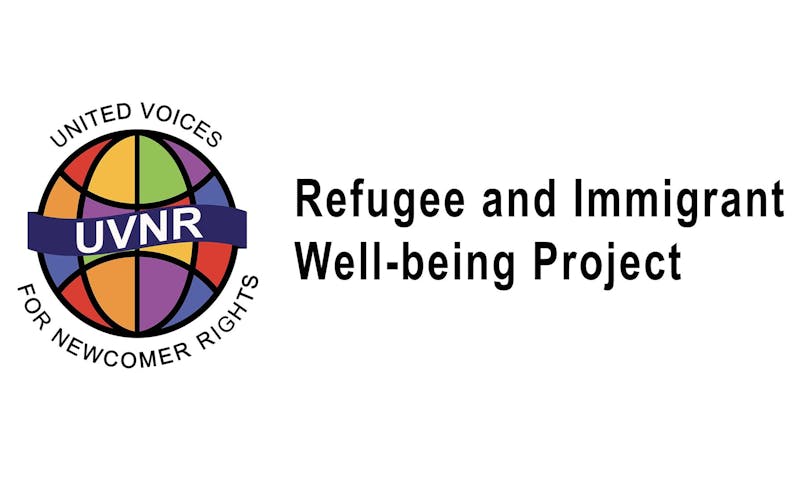
The Refugee and Immigrant Well-being Project (RIWP) at the University of New Mexico is a nine-month program that pairs undergraduate students with immigrant and refugee families that typically starts in August at the beginning of the fall semester. However, due to the current need of so many incoming families to New Mexico, the project will accept another cohort of students in January at the start of the spring semester as well, which will go into the summer semester.
“We work with refugees and immigrants and we bring them together with UNM students to learn from each other — because there’s a lot that they can really learn from each other — and also work together to mobilize resources to help newcomers meet their goals,” Jessica Goodkind, founder of RIWP, said.
Goodkind said this project is a good experience for students to make an impact on these communities.
“(RIWP) addresses two urgent problems: improving the health, stability and integration of refugees, and increasing communities’ willingness to accept them,” coordinator Martin Ndayisenga said in a video about the project.
Mohammed Alkwaz, a 2013-14 RIWP participant and current organizer for the program, said the program helps newcomers adjust to the new environment with resources which introduce them to the new language, culture, transportation and more.
“When a person is coming to new places, they will struggle a lot in some different things,” Alkwaz said.
Taghride Shawfan was a participant of the program in the 2019-20 session. Originally from Damascus, Syria, she moved to America because of terrorism in her home country. The project helped her not only get acquainted with American customs and laws but also meet other refugees.
“It was a great experience and I benefited greatly from it,” Shawfan wrote to the Daily Lobo.
Goodkind said this project is structured like a partnership; both the newcomer and the paired undergraduate student can learn a lot from each other.
“People don’t want to get here and feel like everyone’s just helping them and feeling sorry for them. They want to feel like they have important roles to play in their community — and they do — and so we really want to create those valued social roles and value people’s knowledge and experience,” Goodkind said. “And that’s why the Refugee and Immigrant Well-being Project is structured the way it is — not as something that’s helping (only) refugees and immigrants but as a mutual learning experience.”
Danielle Parker, a former participant of the program, said in the project video that the structure isn’t one-sided and that she “learned just as much or more from (her) refugee partners.”
According to Goodkind, RIWP is currently preparing for a new wave of families that need help, especially considering the current political situation in Afghanistan that has forced refugees out of the country. New Mexico has taken in many refugees and continues to do so, and Goodkind said the organization has received a lot of support from community members that want to help. However, amid the “mobilization and preparation,” Goodkind said it’s stressful that they can’t help everyone.
“As quickly as we’re all working on these issues, we know and we’re hearing every day of Afghan people who have been arrested in Afghanistan and haven’t been able to get out,” Goodkind said.
The project has also been coping with the COVID-19 pandemic and had to adjust to a virtual environment in the last year along with the rest of the University, Goodkind said. With this came challenges of equal access to technology and internet but the social aspect of the program was essential enough for participants to persevere nonetheless.
“The pandemic … has obviously had different impacts on different communities, and because refugees and immigrants are not only met marginalized by their newcomer status and their language but often by race and ethnicity and religion, it’s definitely been hard on many refugee and immigrant families,” Goodkind said.
Alkwaz said that explaining what’s true and what’s not about the vaccine and COVID-19 has also been a difficulty, especially since people coming in have access to many different sources of information.
“We’re facing these things and all these questions,” Alkwaz said. “It’s not easy to handle it and to convince the people to take (the vaccine) to protect themselves and to protect the community.”
In August, the National Institute of Mental Health awarded the organization a grant that launched a five-year study on the different impacts that the pandemic has on Latinx immigrants and African refugees, which they are currently working on.
Originally the project was only open to refugees, but the addition of the immigrant community started in 2018, according to Goodkind.
“We really wanted to build solidarity and understanding between refugees and immigrants because they do share so many similar experiences and can really mobilize to support each other and learn from each other,” Goodkind said.
Goodkind started the project in 2000 as a part of her dissertation in Michigan, but continued the mission in New Mexico in 2006 after settling down in a faculty position at UNM that began in 2004. Overall, she said that refugees aren’t appreciated as they should be in America.
“People who make it here as refugees are really resourceful people who have a lot to teach others,” Goodkind said.
Megan Gleason is the Editor-in-Chief of the Daily Lobo. She can be contacted at editorinchief@dailylobo.com or on Twitter @fabflutist2716
"accept" - Google News
September 27, 2021 at 02:04PM
https://ift.tt/2Y4C7zt
Refugee and Immigrant Well-being Project to accept more participants in spring - UNM Daily Lobo
"accept" - Google News
https://ift.tt/2YsXkRf
https://ift.tt/3d2Wjnc
Bagikan Berita Ini














0 Response to "Refugee and Immigrant Well-being Project to accept more participants in spring - UNM Daily Lobo"
Post a Comment